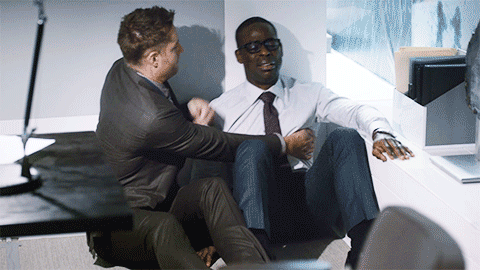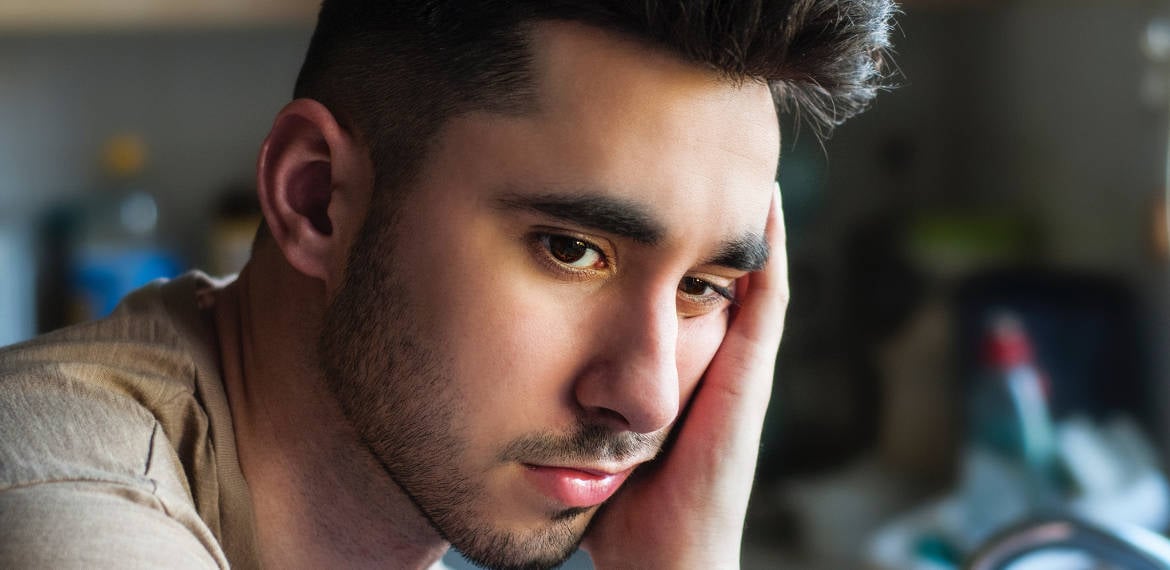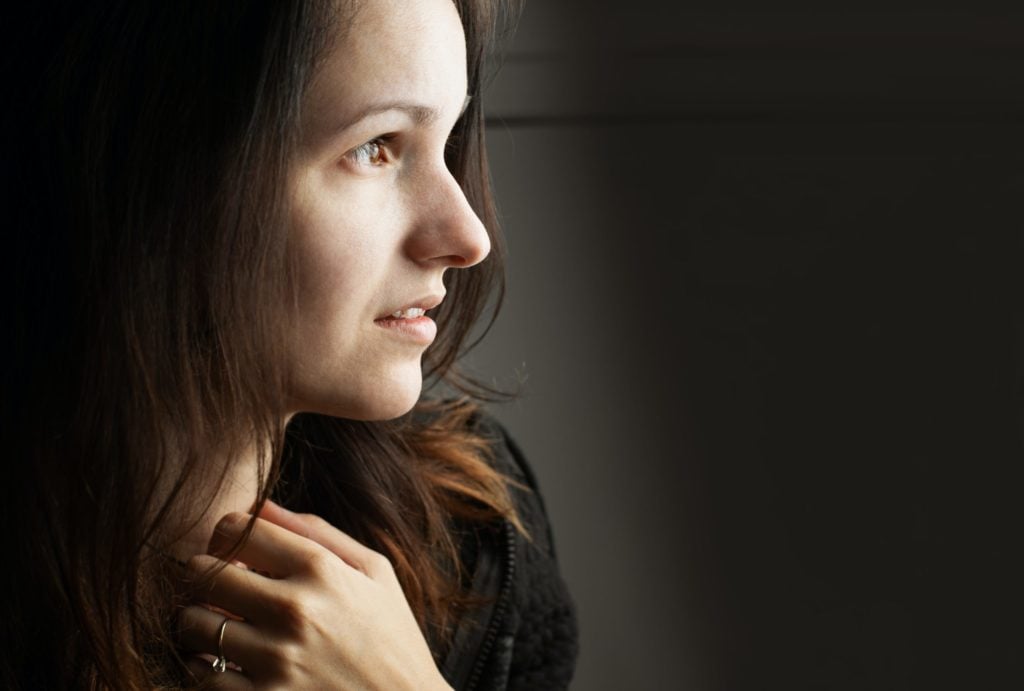
This is Us: 5 Lessons Everyone Can Learn from Randall's Battle with Anxiety
Would you rather listen? Press play above. Ready to read? Scroll on.
Warning: This post contains spoilers.
Since its series premiere in 2016, This is Us has put a spotlight on a wide range of issues – from race and societal stigmas to addiction, grief, body image, and trauma.
The episode “A Hell of a Week: Part 1”, gives a vivid picture of Randall’s lifelong battle with anxiety through flashbacks, nightmares and a dissection of his current struggles after he comes face-to-face with a home invader.
As someone who has faced anxiety since childhood, I was overwhelmingly happy to see the show portray anxiety in a way that resonates with those who have similar struggles, while simultaneously making anxiety relatable for individuals who may have never experienced it before.
“For viewers who don’t live with anxiety, the nightmare sequences are a way to make the experience tangible and relatable. For those who do, “A Hell Of A Week: Part One” delivers a powerful pang of recognition.” – Caroline Siede, Contributor, The A.V. Club
While the focus this week was on Randall’s mental health, there are lessons we can all take away from “A Hell of a Week: Part 1”, because if you personally are not struggling with your mental health, someone you love probably is.
1. Symptom Management is Not a Permanent Solution
If you have kept up with This is Us since the beginning, then you know that Randall’s anxiety is not a new challenge for him. In previous episodes, we’ve seen flashbacks of his breaking down over an essay and getting in trouble for violating the dress code at school. But for the first time, we saw the damaging, long-term effects of managing the symptoms of anxiety instead of treating the root issue
“A Hell of a Week: Part 1” shows us how Randall’s reluctance to address his mental health creates an ongoing cycle of coping, avoiding and, eventually, breaking. Rinse and repeat.
Effective and sustainable healing requires you to dig deeper and look beyond the issues at the surface. While coping mechanisms can provide immediate relief to your struggles, they will never serve as a permanent solution to life’s stuck problems.
2. “Talking to Someone” is Easier Said Than Done
Society has come a long way in reducing the stigma around mental health care, but we still have a long way to go in normalizing mental health conversations for people of all backgrounds, races, and genders. This is Us brings this very real stigma to life in a conversation between Darnell and Randall (below).
No matter how you view therapy, this dialogue is critical in helping 1) People who are “pro-therapy” understand why it may be hard for people to seek help and 2) Showing viewers who may be “against therapy” that it’s OK to ask for help, regardless of your age, gender, race, religion or upbringing.
“Darnell puts aside his political frustrations with his councilman to reach out to Randall as a friend—acknowledging that black men are often taught to mask their emotional vulnerabilities and opening up about how much he’s benefited from therapy. It’s a great scene for Omar Epps, and the type of conversation you rarely see on network TV.” – Caroline Siede, Contributor, The A.V. Club
3. Small Moments Can Have the Biggest Impact
Therapy is often associated with needing help immediately after a “big event” like the loss of a loved one or another trauma. But I think it’s important to recognize the effect that little, everyday moments can have on us, too. This can make pinpointing the root of anxiety or other mental health conditions all the more challenging.
In Randall’s case, his anxiety came to life when he was in preschool and received a crappy “pep-talk” from his dad. Jack’s pleading with Randall to keep “being the easy kid” was all it took to shape him into the perfectionist, anxiety-ridden adult he becomes later on.
At face value, Jack’s talk with young Randall about being brave in his new, big-boy bed does not look like a dramatic, life-altering moment. However, it’s clear that Jack’s words, while well-meaning, negatively impacted Randall, who translated the message into life-long pressure to be good, to be brave, and to handle his problems on his own.
4. Know Your Limits (Especially When It Comes to Your Mental Health)
This pivotal moment between Jack and Randall is a turning point in establishing the person Randall grows up to be. He becomes an overachiever — a family man who puts everyone before himself, and someone who strives for perfection in all aspects of his life. Sounds good on the surface, right?
For Randall, though, enough is never enough. He’s always eager to please and always keeps himself preoccupied (sometimes literally running from his problems, as we saw toward the end of the episode).
Randall dismisses his emotional and mental limits and, in turn, lashes out on a mugger (not saying the guy didn’t deserve it, but Randall definitely took it past the point of subduing the situation.) While Randall was deemed a hero for his actions, we also saw the internal struggle he faced as he knew he had taken things too far.
5. Healing is Your Responsibility
Everyone is worthy and deserving of support, but friends, family members, and loved ones should not, and can not, be responsible for the way you heal. They’re not experts in your life. You are. Healing is entirely your responsibility.
By seeking help outside of your circle — professional help — you’re giving yourself the gifts of self-worth, self-confidence, and self-respect. By exploring parts of your life that you may not have been willing to address before, you can face your own demons and finally win the battles you’ve fought for so long in isolation.
If you or someone you know is struggling with their mental health, please contact our team, or get in touch with a counseling provider near you.
For immediate help, please call the National Suicide Prevention Lifeline at 1-800-273-8255.
For information on other free crisis resources, visit: https://www.mentalhelp.net/anxiety/hotline/

About Lifeologie
Lifeologie Counseling was founded in 2000 with one goal in mind — to bring a fresh, innovative approach to the everyday problems of life. Creative solutions to stuck problems®. With our unique multi-specialty, collaborative approach, Lifeologie Counseling helps individuals and families heal their wounds and break out of old, unhealthy patterns.





